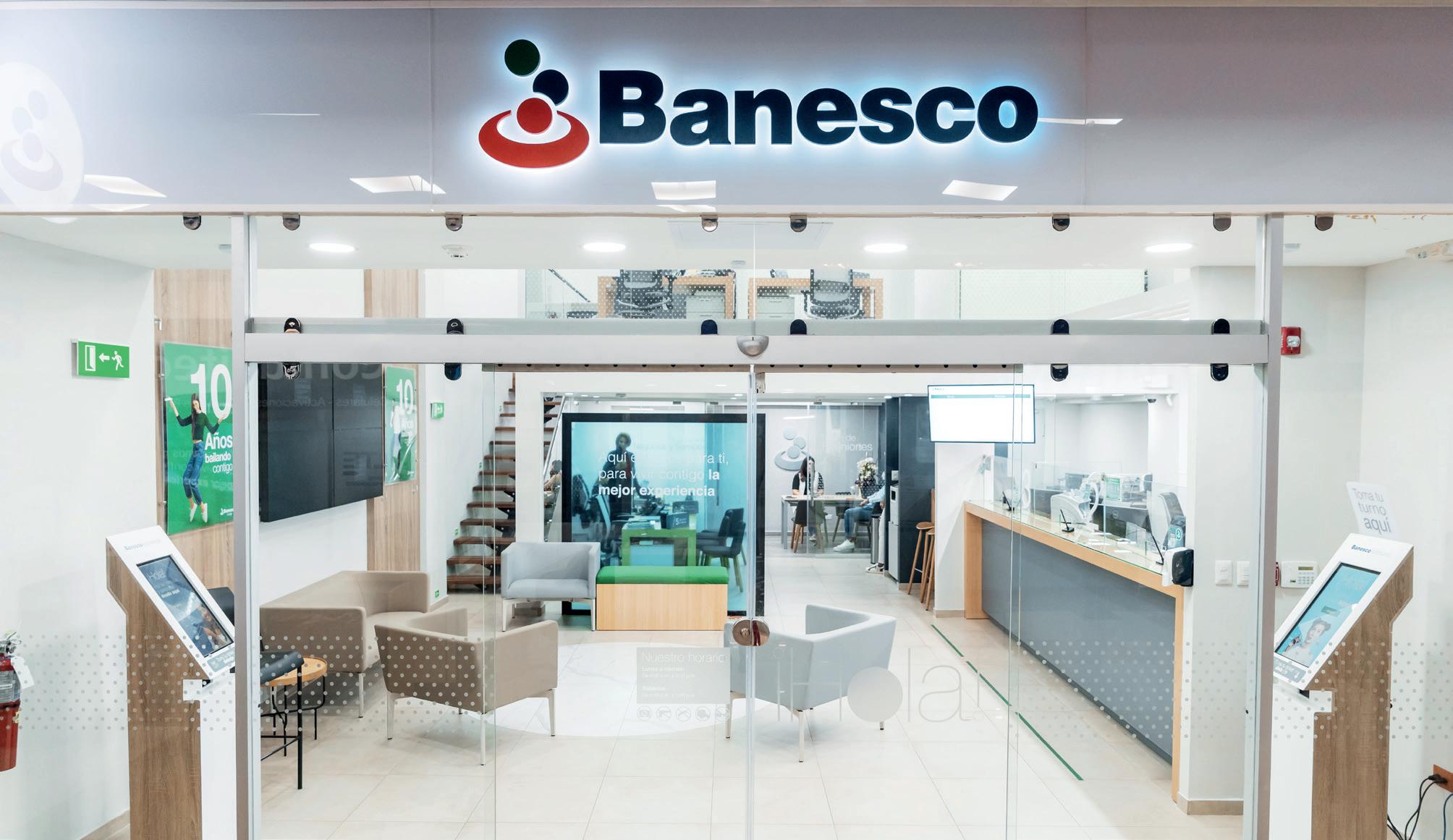
11 minute read
Ardu Prime, A Greek Investment Services Company has Managed to Distinguish Itself from the Competition
from PAN Finance Magazine Q2 2022
by PFMA
BANKING & INVESTMENT PAN Finance Magazine Q2 2022

ARDU PRIME, A GREEK INVESTMENT SERVICES COMPANY HAS MANAGED TO DISTINGUISH ITSELF FROM THE COMPETITION FOR ITS PREMIUM SERVICES AND HAS BEEN AWARDED “BEST INVESTMENT SERVICES PROVIDER”, “MOST RELIABLE FX & CFD BROKER” AND “TRADING HOUSE OF THE YEAR” BY PANFINANCE MAGAZINE.
Ardu Prime has been operating in the financial services industry for more than two decades and has evolved into a premium investment house offering comprehensive solutions to professionals and sophisticated investors, combining cutting-edge trading technology with very competitive trading conditions.
TIMELINE & REGULATION
Established in 1999, Ardu Prime is authorised and regulated by the Hellenic Capital Market Commission and a member of the Guarantee Fund and fully compliant with the European Legislation MiFID II. Since 2018, with a new shareholding regime and management in place, it has been focused on investment services for Forex & CFDs. Established partnerships with international companies of the broad financial industry and fintech companies to create a unique “one-stop-shop brokerage” for professional investors. By 2020, the company has been strengthened by a solid and growing high-value client base and continuous investment in proprietary technology and software. From 2020 until today, Ardu Prime forged new partnerships, acquired the licence to use the multi-award-winning MetaTrader 5 platform and expanded its business offering to Retail Forex. To support retail clients, the company created the Department of Dedicated Client Support. At the beginning of 2022 Ardu Prime, looking to the future of the financial and investment sector, according to EU and Greek legal framework was registered as a “Virtual Asset Service Provider” (VASP) under HCMC, allowing Ardu Prime to provide Exchange and Custody services for Digital Assets (Cryptocurrencies) to their clients.
THE SECRET OF SUCCESS
Most of Ardu Prime competitors in the industry (Forex/CFDs) on a global scale have a relatively large number of small clients and at the same time spend huge budgets on communication and marketing strategies to attract them, while providing almost the same services to everyone.
Ardu Prime decided to proceed with a different business model, contrary to the standard approach; having identified that in this industry, and generally in the financial sector, investors with a portfolio of lower value receive standard services from the financial institutions, in contrast to investors with a portfolio of millions who receive special attention. However, those who are between these two categories are usually treated in a similar way to smaller value investors thus creating a shortage of high-quality services for such investors. Taking advantage of this market gap and following a less conventional business development model through collaborating with smaller companies of the industry, already in 2018 back to back with fintech providers, Ardu Prime provided a complete one-stop and bespoke solution to investors with portfolios of hundreds of thousands or a couple million, including cutting edge technology and very competitive trading conditions. By following this strategy, Ardu Prime successfully established relationships with this type of investor and gradually built equally strong ties with clients and partners.
CLIENTELE
Although its clientele consists mainly of proprietary trading firms and high-net-worth individuals, and in parallel working closely with
www.panfirnance.net

Hedge Funds, Wealth Management Firms, and Family Offices, Ardu Prime now welcomes every investor and trader.
An institutional investor, such as another brokerage firm, could launch its Forex / CFDs department through Ardu Prime and offer the same services to its clients seamlessly. Other types of investors, such as existing clients, can gain competitive and premium access to global markets in combination with the excellent technology in a custom setup.
In addition, Ardu Prime welcomes all retail investors and traders who are interested in trading with a reliable company operating under strict European Supervision and who wish to have access to a variety of investment products through the best trading platform and receive personalised support and of course gain benefits that only professionals have.

CRYPTOCURRENCY SERVICES
With foresight and keeping up with global market trends, Ardu Prime has successfully completed its registration with the Hellenic Capital Market Commission and can now provide cryptocurrency exchange services for trading cryptocurrencies with fiat money, cryptocurrencies with other cryptocurrencies, as well as cryptocurrency custody services. By prioritising customer security and the firm’s credibility in the new services offered, the company applies the same customer protection procedures for cryptocurrency services as it does for investment services.
Investing in cryptocurrencies and using virtual asset custody services makes it imperative to work with a qualified and reliable company. Any investor is bound to be more secure if they work with a company that has a long-standing track record in the investment services industry which decides to enter the cryptocurrency sector, especially when compared to any other startup. These very circumstances combined with the great increase in interest in cryptocurrencies have been the main reasons that a Greek brokerage, Ardu Prime, which excels in its field, has decided to expand into the cryptocurrency sector.
Ardu Prime provides its clients with a cutting-edge trading platform, with unique features and high-quality services for every type of investor of any portfolio value. Investors have the ability to exchange between a long list of cryptocurrencies, stable coins, and fiat. The plethora of expertise and experience, combined with Ardu Prime’s secure operating framework, the reliability of a regulated company, and the experience of its executives in providing investment services, were catalysts for the creation of its platform - one that stands alongside the top existing names in the crypto world. Sotirios Promponas CEO
BANKING & INVESTMENT PAN Finance Magazine Q2 2022

Guido Cozzi
Professor of Macroeconomics, University of St.Gallen
Leonardo Becchetti
Professor of Political Economy, University of Rome Tor Vergata
A central bank digital euro could save the eurozone – here’s how
The European Central Bank and its counterparts in the UK, US, China and India are exploring a new form of state-backed money built on similar online ledger technology to cryptocurrencies such as bitcoin and ethereum. So-called central bank digital currencies (CBDCs) envision a future where we’ll all have our own digital wallets and transfer money between them at the touch of a button, with no need for high-street banks to be involved because it all happens on a blockchain.
But CBDCs also present an opportunity that has gone unnoticed – to vastly reduce the exorbitant levels of public debt weighing down many countries. Let us explain.
The idea behind CBDCs is that individuals and firms would be issued with digital wallets by their central bank with which to make payments, pay taxes and buy shares or other securities. Whereas with today’s bank accounts, there is always the outside possibility that customers are unable to withdraw money because of a bank run, that can’t happen with CBDCs because all deposits would be 100% backed by reserves.
Today’s retail banks are required to keep little or no deposits in reserve, though they do have to hold a proportion of their capital (meaning easily sold assets) as protection in case their lending books run into trouble. For example, eurozone banks’ minimum requirement is 15.1%, meaning if they have capital of €1 billion (£852 million), their lending book cannot exceed €6.6 billion (that’s 6.6 times deposits).
In an era of CBDCs, we assume that people will still have bank accounts – to have their money invested by a fund manager, for instance, or to make a return by having it loaned out to someone else on the first person’s behalf. Our idea is that the 100% reserve protection in central bank wallets should extend to these retail bank accounts.
That would mean that if a person put 1,000 digital euros into a retail bank account, the bank could not multiply that deposit by opening more accounts than they could pay upon request. The bank would have to make money from its other services instead.
At present, the ECB holds about 25% of EU members’ government debt. Imagine that after transitioning to a digital euro, it decided to increase this holding to 30% by buying new sovereign bonds issued by member states.
To pay for this, it would create new digital euros – just like what happens today when quantitative easing (QE) is used to prop up the economy. Crucially, for each unit of central bank money created in this way, the money circulating in the wider economy increases by a lot more: in the eurozone, it roughly triples. This is essentially because QE drives up the value of bonds and other assets, and as a result, retail banks are more willing to lend to people and firms. This increase in the money supply is why QE can cause inflation.
www.panfirnance.net

If there was a 100% reserve requirement on retail banks, however, you wouldn’t get this multiplication effect. The money created by the ECB would be that amount and nothing more. Consequently, QE would be much less inflationary than today.
THE DEBT BENEFIT
So where does national debt fit in? The high national debt levels in many countries are predominantly the result of the global financial crisis of 2007-09, the eurozone crisis of the 2010s and the COVID pandemic. In the eurozone, countries with very high debt as a proportion of GDP include Belgium (100%), France (99%), Spain (96%), Portugal (119%), Italy (133%) and Greece (174%).
One way to deal with high debt is to create a lot of inflation to make the value of the debt smaller, but that also makes citizens poorer and is liable to eventually cause unrest. But by taking advantage of the shift to CBDCs to change the rules around retail bank reserves, governments can go a different route.
The opportunity is during the transition phase, by reversing the process in which creating money to buy bonds adds three times as much money to the real economy. By selling bonds in exchange for today’s euros, every one euro removed by the central bank leads to three disappearing from the economy.
Indeed, this is how digital euros would be introduced into the economy. The ECB would gradually sell sovereign bonds to take the old euros out of circulation, while creating new digital euros to buy bonds back again. Because the 100% reserve requirement only applies to the new euros, selling bonds worth €5 million euros takes €15 million out of the economy but buying bonds for the same amount only adds €5 million to the economy.
However, you wouldn’t just buy the same amount of bonds as you sold. Because the multiplier doesn’t apply to the bonds being bought, you can triple the amount of purchases and the total amount of money in the economy stays the same – in other words, there’s no extra inflation.
For example, the ECB could increase its holdings of sovereign debt of EU member states from 25% to 75%. Unlike the sovereign bonds in private hands, member states don’t have to pay interest to the ECB on such bonds. So EU taxpayers would now only need to pay interest on 25% of their bonds rather than the 75% on which they are paying interest now.
INTEREST RATES AND OTHER QUESTIONS
An added reason for doing this is interest rates. While interest rates payable on bonds have been meagre for years, they could hugely increase on future issuances due to inflationary pressures and central banks beginning to raise short-term interest rates in response. The chart below shows how the yields (meaning rates of interest) on the closely watched 10year sovereign bonds for Spain, Greece, Italy and Portugal have already increased between three and fivefold in the past few months.
Following several years of immense shocks from the pandemic, the energy crisis and war emergency, there’s a risk that the markets start to think that Europe’s most indebted countries can’t cover their debts. This could lead to widespread bond selling and push interest rates up to unmanageable levels. In other words, our approach might even save the eurozone.
The ECB could indeed achieve all this without introducing a digital euro, simply by imposing a tougher reserve requirement within the current system. But by moving to a CBDC, there is a strong argument that because it’s safer than bank deposits, retail banks should have to guarantee that safety by following a 100% reserve rule.
Note that we can only take this medicine once, however. As a result, EU states will still have to be disciplined about their budgets.
Instead of completely ending fractional reserve banking in this way, there’s also a halfway house where you make reserve requirements more stringent (say a 50% rule) and enjoy a reduced version of the benefits from our proposed system. Alternatively, after the CBDC transition ends, the reserve requirement could be progressively relaxed to stimulate the economy, subject to GDP growth, inflation and so on.
What if other central banks do not take the same approach? Certainly, some coordination would help to minimise disruption, but reserve requirements do differ between countries today without significant problems. Also, many countries would probably be tempted to take the same approach. For example, the Bank of England holds over one-third of British government debt, and UK public debt as a proportion of GDP currently stands at 95%.







